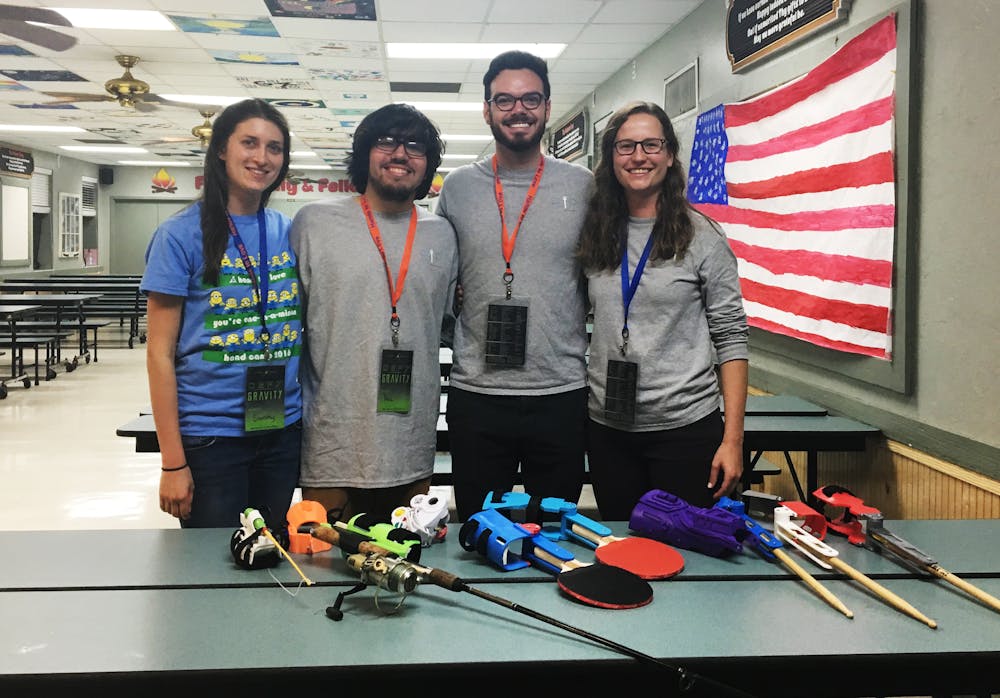People always stare at Cameron Haight’s hands.
The 4-year-old’s fingers are twisted together and fused, the result of a condition called amniotic band syndrome.
“It’s like everywhere we go, people ask about his hands,” his mother, Sarah, 31, said of their life in Charlotte, North Carolina.
But over the weekend, along the vast land at Camp Crystal Lake in Starke, Florida, Haight said she could tell her son was unusually at ease among strangers.
He was at the campsite to attend this year’s Hand Camp, hosted by the nonprofit Hands to Love, just 30 minutes north of Gainesville. At- tending for the second time, Cameron was one of about 70 children who all have what organizers refer to as limb differences.
“Here, he is the normal,” Haight said.
From Friday to Sunday, families from across the country came to Starke, partaking in bonfires, hayrides, educational presentations and long nights under the stars.
Ruthie Dell, who started the camp with her husband, Paul, in 2001, said the three-day camp is a way to demystify the differences among the children.
“It’s a safe haven,” said Dell, an occupational therapist who specializes in treating patients’ arms and hands at UF Health Shands Hospital.
A trio of UF doctoral students gave a presentation Friday about their mind-controlled drones, which they used in 2016 to host what they billed as the world’s first “brain drone race.” On Saturday, the UF group GRiP brought the campers activity-specific prosthetics they designed, including one attached to a fishing rod and another with a pingpong paddle.
The featured speaker at the camp was Kyle Smith, a 32-year-old from Illinois who lost his arm in an eight-story fall from his balcony in 2010. An avid hunter, Smith said he refused to let his lack of a right arm stop him from practicing archery; he pulls the trigger with his mouth.
For him, being able to reach children with limb differences at a young age and instill in them the motivation to continue living their lives uninterrupted gives him a sense of purpose.
“You can do anything you want to do if you put your mind to it,” Smith said.
Kim Vogelgesang, 47, traveled to the camp from Cincinnati, Ohio, with her 12-year-old son Gabe, who was born with symbrachydactyly, which causes short, webbed or missing fingers. As Gabe looked on during the drone presentation, Vogelgesang said learning about the future of tech along with his peers and being in- stilled with a can-do attitude was a powerful experience.
“I just enjoy seeing my son’s light shine,” she said.
Contact Martin Vassolo at mvassolo@alligator.org and follow him on Twitter at @martindvassolo
Members of UF GRiP, a club that 3-D prints activity-specific prosthetics, pose with some of their newer models at Hand Camp 2017, a gathering of children with limb differences held from Friday to Sunday in Starke, Florida.






